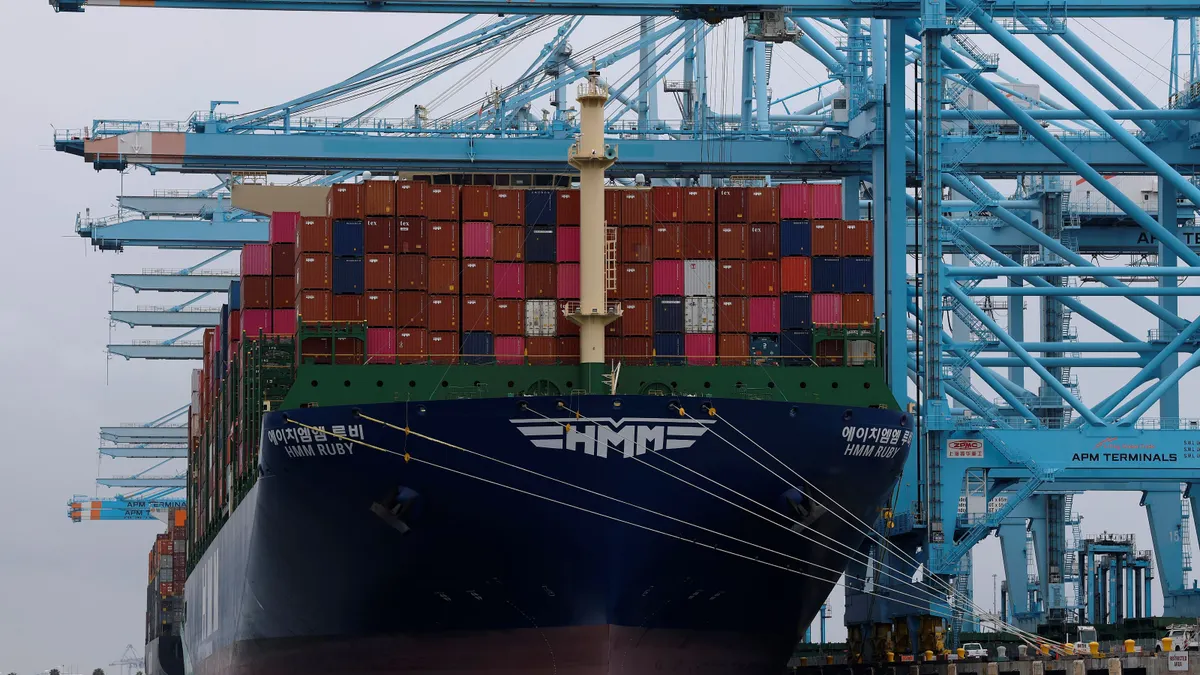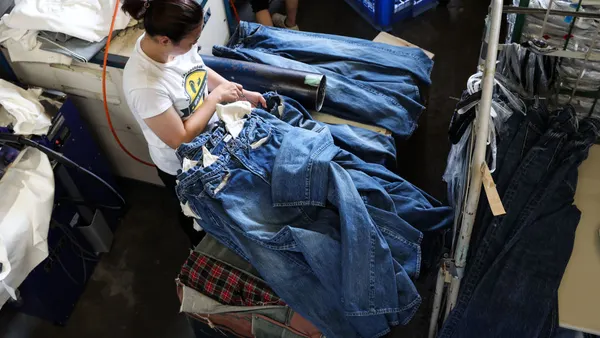Dive Brief:
- The producer price index last month rose at the fastest rate in three years, the Bureau of Labor Statistics said Thursday, as costs from the highest tariffs since the 1930s started to trickle through supply chains.
- The PPI, which measures prices charged by wholesalers, increased a higher-than-forecast 0.9% in July and 3.3% on an annual basis, the BLS reported.
- “Now, tariffs are feeding through” the supply chain from wholesalers to retailers and beyond, Federal Reserve Bank of St. Louis President Alberto Musalem said. “Companies told us that it would take about three to six months to pass on the costs” from import duties, Musalem said. “We’re right around that three-month mark,” he said in a CNBC interview.
Dive Insight:
Musalem and other Fed officials confront data that challenges their congressional mandate to ensure both price stability and full employment.
The job market in recent months has weakened, with the three-month average in payroll gains slumping to 35,000 from an average of 127,000 from February through April.
Meanwhile, core inflation, excluding volatile food and energy prices, rose at a 3.1% annual rate last month after a 2.9% gain in June, with a resurgence in the cost of services including transportation and medical care fueling much of the gain, the BLS said Tuesday.
Recent data indicates that inflation persists about 1 percentage point above the Fed’s 2% long-run target, Musalem said.
“It’s going to take another two to three quarters for tariffs to play through” the data on price pressures, he said. “I expect most of the impact to fade over time, but there is a reasonable probability that there may be some persistence, and we need to get a better fix on that understanding.”
Correction: In a previous version of this article, Alberto Musalem was misidentified. He is the president of the St. Louis Fed.

















